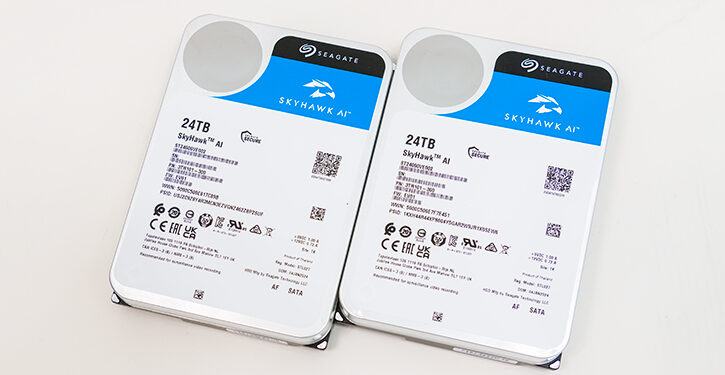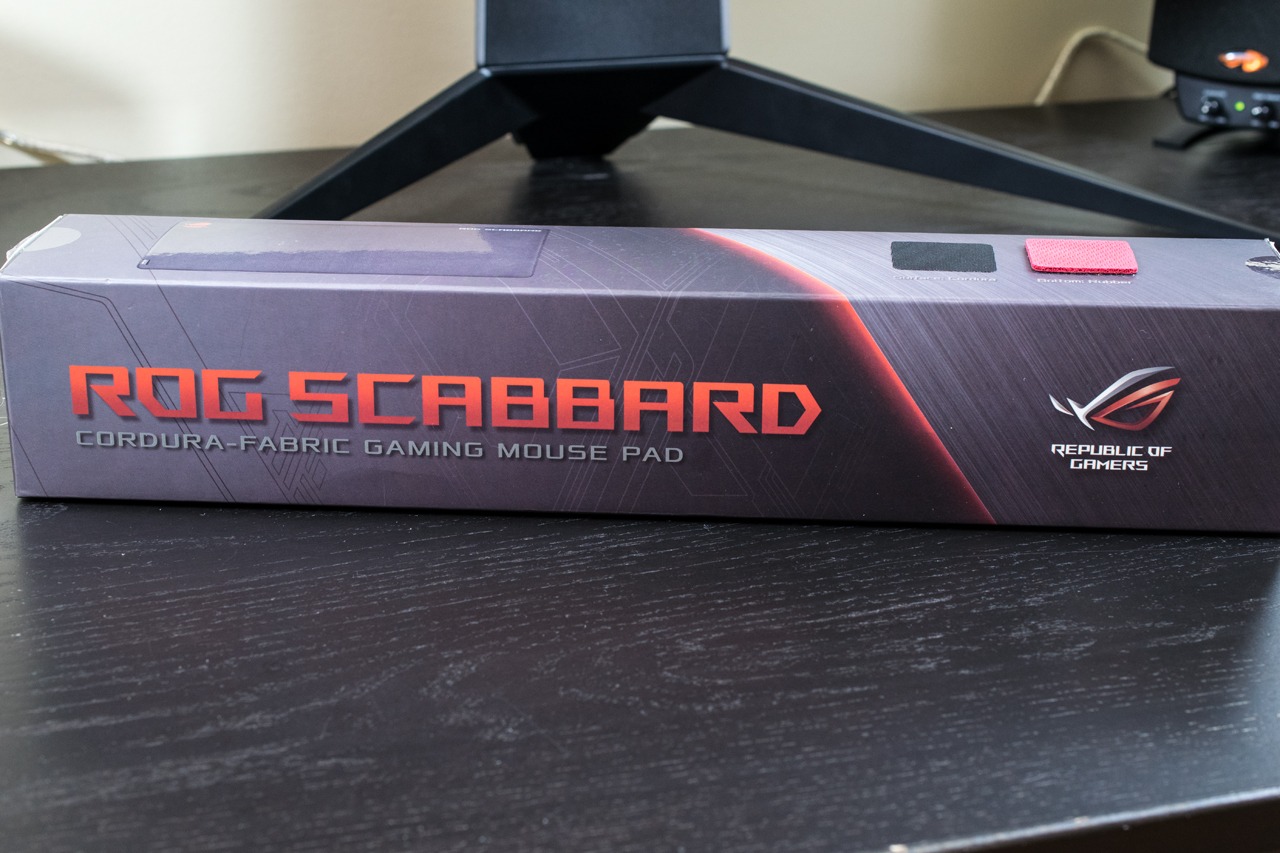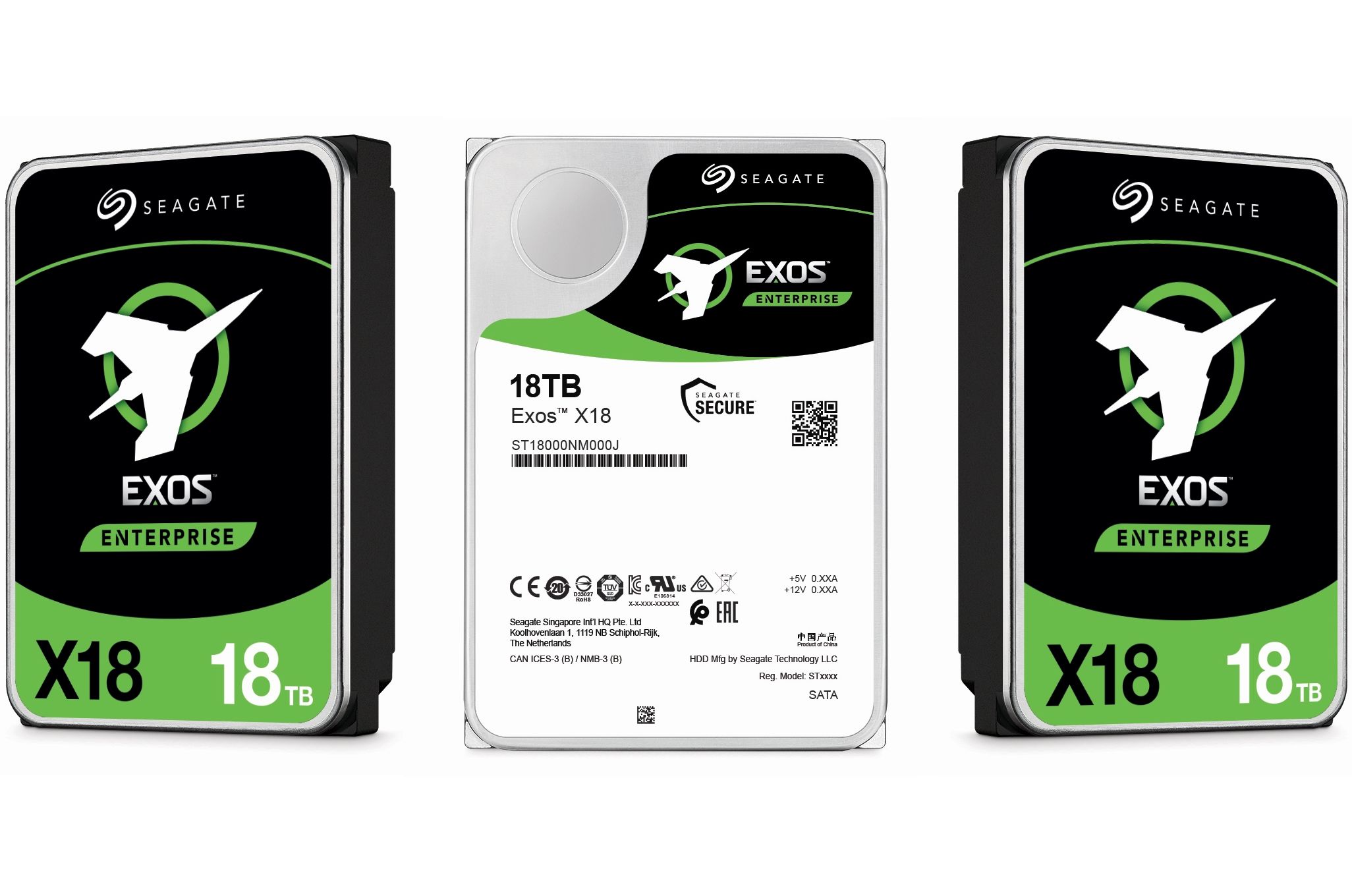Final Score: 92 out of 100
Before we being we must go over a pet peeve of ours. The name. Seagate in their typical conservative methodology have given it a highly logical name: one that denotes its meant for surveillance systems and has extremely advanced algorithms compared to other models. More important SkyHAWK AI name predates the whole “AI in EVERYTHING” buzzword bingo. Unfortunately, Seagate has not done a great job of explaining why it is not a buzzword bingo winner. Put bluntly, it is a highly optimized tool meant for expensive surveillances systems which will be handling a lot of streams: 32 write and up to 6 reads. Concurrently. Constantly. Consistently. That is what the SkyHAWK AI is meant to handle, and what it can handle, and do better than any other Seagate model including the orginal SkyHAWK series. This was why they originally added the whole ‘AI’ to the end of the model name. Unfortunately, the O.G. SkyHAWK is no longer in production and in fact has not been in production since the 16TB days of yore. Thus… Seagate could easily drop the whole ‘AI’ buzzword minefield and nothing of note would be lost. Put another way, please pick a lane Seagate. Either call it just the “SkyHawk” series… or bring back the old n slow version that can still easily handle more consumer orientated surveillance storage needs. Either option would be less confusing for consumers.
With that little bit of housecleaning taken care of… As we have stated multiple times in this review the days of having to pay a lot of attention to which model one buys are pretty much done. Darn near any modern HDD is big enough, fast enough, and powerful enough to “overcome” any firmware optimizations that give it a handicap in “non-standard scenarios”. That means an IronWolf can indeed make for a great ‘D’ drive. It means ‘Wolf Pro can be used in a Large Storage Array Network. It can be used in a single bay DAS… and the same is true for the Exos X series. There will be differences, but probably not big enough to justify spending more for one over the other. The SkyHAWK AI series however… is different. It has been heavily optimized for concurrent r/w of 4K A/V streams. A lot of streams. As such the way it lays down files, how it handles error correction, and even what size of files it “likes” is radically different than the rest of the Seagate lineup.
This is not to say it cannot do an admirable job in a SAN or NAS array. It does not mean it cannot whistle the tune of being a mega-sized “D” drive that is choke full of everything from your Apple iTunes library to your Steam library. It just means it may be a step or two behind the other options. Which is perfectly fine. All of these big boi 24TB’ers are bloody fast and stay fast for a long, long time. So if you are upgrading from a normal sized drive (even 16TB’er) it probably will be noticeably faster/better than what you were previously using. It just will not be optimal. Especially if you are running it mainly in single queue depths. Here the firmware and its “the files must flow” prioritization of deep queue depths will tie one of its virtual hands behind its back. Still great. Just not optimal.
As such no one should have any major issues with its performance. What some may find fault with is the fact that it really does rely upon the baked in ECC in any modern A/V Codec to handle the extremely rare, but highly dreaded, uncorrectable bit error events. It will simply skip it, expect the CODEC and host system to fix it… and move on. Which is actually excellent for Home Theatre PC enthusiasts who will be filling it to capacity with h.264/265/266, AV1 and other modern video codec encoded files. It is not so excellent if you are talking about a word document. Your email backup. Any application (let alone the OS). Here, “ignoring” a bad bit is going to result in you having a bad day. Falling in-between those extremes is typical songs and even pictures. Which will typically be fine. All of which may make the SkyHAWK perfect for your needs or be a deal-breaking issue… with few potential buyers falling in-between these extremes.
Yes, the SkyHAWK AI series is the most optimized variant Seagate makes. It is a true master of its trade, not a jack of all trades. So much so you should have a hard time justifying running anything other than a SkyHAWK AI in your surveillance storage array. For HTPC use it is equally excellent choice. Arguably one of the best options going. Conversely you should have a very hard time justifying it for any job outside R/W of streams… unless the price is right. If you can pick up a ‘Hawk AI for less than an EXOS X24 we would not worry too too much about its quirks. After all, it is a big boi drive. Just one that would be the equivalent of using a Samari Sword to cut up potatoes to make pomme frites. So please do keep an eye out on the real world asking price as it is a powerful as it is quirky.


The Review
Seagate SkyHAWK AI 24TB Review
The Seagate SkyHAWK AI series is a highly optimized HDD specifically designed for high-demand surveillance systems, capable of handling numerous concurrent 4K A/V streams consistently and efficiently. While it excels in its niche, its firmware prioritization for deep queue depths and reliance on modern A/V codecs for error correction make it less suited for general-purpose or single-queue applications, potentially causing issues with non-media files like documents or backups. Despite its quirks, the SkyHAWK AI is an excellent choice for surveillance or HTPC use, though its specialized design may not justify its price outside those contexts unless heavily discounted.









